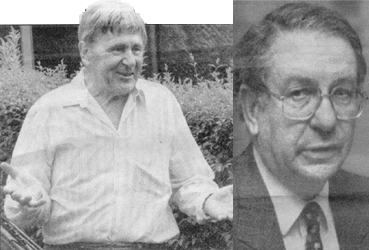|
The Professor who was publicly humiliated over claims that Genetically Modified Frankenstein¹ food may be harmful and who has subsequently been proved right, world expert Dr Arpad Pusztai, was stripped of his post and described as muddled¹ by his superiors after he referred to experiments in which rats had been damaged when fed genetically altered potatoes. Rats feed with GM potatoes did suffer shocking internal damage and a leading pathologist who re-examined their remains confirmed Dr Pusztai¹s findings. The scientific bombshell lit a fire of controversy over the safety of genetically altered food. The revelations placed a question mark over the future of Dr Pusztai¹s former boss, Professor Philip James, who ousted him from the research programme and was tipped as head of the Government¹s new Food Standards Agency. Three years later, with still no further research carried out of GM product safety, Arpad Pusztai, today issued a challenge for his research to be repeated. If his findings were validated independently, he said, not to publish it would be "suppression". Under cross-examination at the Royal Commission on Genetic Modification in Wellington, Dr Pusztai, 71, fiercely defended his mainly government-funded research that had also shown compositional changes in the modified potatoes. Life Sciences Network counsel, Chris Hodson QC, had quoted a critical paper, alleging the changes had been "tiny", that increased rat intestinal sizes were natural responses to cope with food given to them, and that potatoes were a poor test mechanism. " 'Tiny' is not a scientific term," Dr Pusztai, appearing for Friends of the Earth, said. "It's either statistically significant or not." Other studies supported his findings, he said, and the institute should repeat his research. "If they again find similar things (and don't publish) it would be active suppression and they can't do that," he said. "Nobody can in a democratic society." Supported by his former Rowett Research Institute, Aberdeen, colleagues Susan Bardocz and Stanley Ewen, he gave an emotional description of "going public" with his research findings in 1998, at first with the backing of his institute. Friends of the Earth and the day's other submitter, the Pacific Institute of Resource Management, spoke also of a potential for new DNA to enter the human gut and to cross plant species. The Pacific institute is an organisation "dedicated to sustainable use of the earth's resources". Its key witness, Beatrix Tappeser, head of Freiburg, Germany's Institute for Applied Ecology's risk assessment in genetic engineering department, said there was an urgent need to reconsider evaluation systems. She then made a comparison to Europe's mad cow disease scare, saying: "There had been early hints that this was a consequence of changed processes and that infected cows could infect humans through the food chain." But doing the necessary research now would be "15 or 20 years too late", she said. No research was being done on ecological consequences of a release. "There is too much unknown and too much at stake to just go on." Dr Tappeser's evidence included reference to research by German scientist Hans Hinrich Kaatz, which she said showed that bees had taken up transgenic pollen, and that traces had reached their intestines. The work was disputed under cross-examination. Both submitting groups argued that a near-total lack of research into the impacts of the new technology, warranted a "very precautionary" approach. Friends of the Earth witness Denys Trussel also expressed his horror at a growing international interest in eugenics, the science of "creating" superior beings.
|

